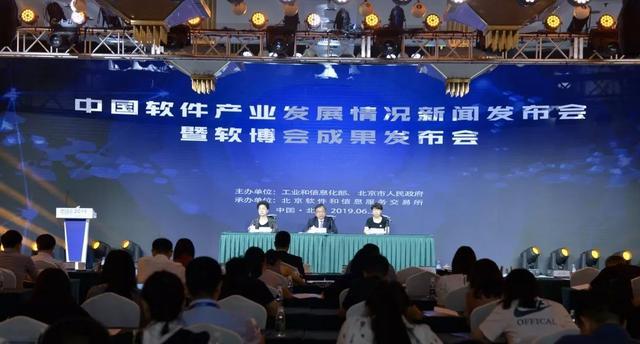

NEWS
CONTACT US
Endela Electronics (Shenzhen) Co., Ltd.
Fax: + 86 - 755 - 8524 0865
Email: wade@endela.cn
Address: Building A5, Loul Gang Blue Sky Technology Park, Songgang, Bao'an District, Shenzhen
How to resolve the talent mismatch in the industrial and information technology sector
Category:
Industry News
Author:
Source:
Published Time:
2021-06-17
Visits:
1
Talent is the primary factor in industrial development and technological innovation. High-quality industrial development must be matched with high-quality talent. Recently, at the first Industrial Talent Innovation Development Forum and a series of reports on talent demand forecasts in key areas of industry and information technology, hosted by the Ministry of Industry and Information Technology Talent Exchange Center, Li Jianwei, director of the School of Public Administration and the State Council's Research Center for Human Resource Development, particularly emphasized the importance of talent in the development of the industrial and information technology industries. The development of the industry is inseparable from the support of a high-quality talent team. Only when talent is strong can the manufacturing industry be strong, and the information industry can thrive. The golden age of industrial and information technology development has quietly begun. How can China solve the problem of talent supply and demand in the industrial and information technology fields?
The market needs more interdisciplinary talent.
At present, the digital economy is changing with each passing day, and the digital wave is surging. The emergence of new-generation information technologies such as 5G, big data, cloud computing, artificial intelligence, and blockchain has profoundly changed the traditional manufacturing model. The demand for talent in emerging markets such as intelligent connected vehicles and the industrial internet is more important and urgent than ever before.
Talent is the key element and the primary driving force for the transformation and upgrading of the industrial and information technology industries. What kind of leading talent does domestic industrial development need? Li XueLin, Party secretary of the Ministry of Industry and Information Technology and director of the Talent Exchange Center, pointed out at the meeting that China's industrial and information technology industry needs cross-professional, cross-disciplinary, and cross-industry talent, and the development of key industries needs more high-tech talent.
Currently, China's automobile industry is developing in the direction of electrification, intelligentization, networking, and sharing. Li XueLin said that in the field of intelligent connected vehicles, R&D talent is distributed in system design/integration, environmental perception, decision control, network communication, big data, cloud platforms, artificial intelligence, security technology, map positioning, standards and regulations. This technical field urgently needs relevant talents familiar with various technologies such as computers, electronic information, vehicle engineering, automation, and machinery.
In the manufacturing industry, at present, China's traditional manufacturing industry is accelerating its transformation and upgrading towards networking and intelligence, and new-generation information technology and manufacturing technology are beginning to deeply integrate. Li XueLin said that the professional knowledge of talent in the intelligent manufacturing industry covers multiple professional directions such as mechanical engineering, manufacturing technology, software, and computers, and also involves more than ten technical fields. It can be seen that for domestic industries represented by intelligent manufacturing to achieve further development, having more interdisciplinary talent is particularly crucial.
Against the background of the continuous expansion of the scale of high-tech industries and application scenarios, China will inevitably need more leading talents in the field of high-tech to promote industrial development. Li XueLin pointed out that at present, the compound growth rate of new-generation information technologies such as the industrial internet, artificial intelligence, and blockchain has reached more than 30%. The growth rate of industrial scale is accelerating, and the driving effect of industrial integration is obvious. Taking the industrial internet field as an example. In 2020, China's total industrial internet output value was about 3.1 trillion yuan, with a year-on-year actual growth of 47.9%, of which the core industry output value was 652 billion yuan, and the impact of the integrated economy will reach 2.49 trillion yuan. In the blockchain field, as of December 2020, China has nearly 1005 blockchain companies, becoming one of the world's largest single markets, and the demand for related industry talents is constantly growing.
Talent supply issues urgently need to be addressed.
Currently, the demand for talent in the industrial and information technology industry has developed to a stage of high concern. Industry experts said that the insufficient supply of talent in the industrial and information technology field is the primary issue that China's related industries urgently need to break through.
In the key software field, "cannot find," "cannot recruit," and "cannot retain" are the biggest problems facing talent demand. Pu Songtao, director of the software research office of the Information Technology and Software Industry Research Institute of the China Electronics Information Industry Development Research Institute, said at the meeting that due to the high demand for talent on the demand side, "there is no talent to be found." He said that many software and hardware companies need not only talent who understand programming skills but also industry knowledge. Single recruitment channels lead to "cannot recruit talent;" insufficient salary competitiveness in the demand-side industry leads to "cannot retain talent."
In the field of intelligent connected vehicles, the lack of interdisciplinary talent and the lack of practical ability among graduates are the main difficulties faced by enterprises. Zhao Lianfang, deputy secretary-general of the China Society of Automotive Engineers, pointed out at the meeting that some positions provided by intelligent connected vehicle companies are composite positions, requiring relevant talents to master multiple knowledge and skills. However, it should be noted that automotive engineering disciplines in China have not yet been set as interdisciplinary disciplines, so the knowledge mastered by relevant talents does not have composite characteristics, leading to a shortage of interdisciplinary talent in some positions. In addition, some graduates also lack practical ability. The adaptation time for R&D-related positions is as long as one year, which leads to a deviation between talent supply and industry demand.
For the industrial internet field, the market demand is large, but the number of practitioners is small, resulting in a significant imbalance between talent supply and demand. Chen Bin, deputy secretary-general of the Industrial Internet Industry Alliance, said that in 2020, the industrial internet added 2.55 million jobs, but only 655,000 graduates from industrial internet-related majors, and there is still a supply-demand imbalance in the job market. Exacerbating this phenomenon is that currently, only about 60% of graduates enter the information and communication and manufacturing industries, far from meeting the needs of the industrial internet industry. In Chen Bin's view, the difficulty in recruiting related talents may be related to the unclear definition of industrial internet talents by some companies, and most industrial internet companies are concentrated in first-tier cities.
The speed of talent supply cannot keep up with the pace of industry development is a major challenge facing the artificial intelligence field. Cheng Yu, deputy director of the Talent Development Department of the Ministry of Industry and Information Technology Talent Exchange Center, said that the talent training cycle in universities is generally 3-4 years, but the development speed of the artificial intelligence industry is very fast, so the current talent supply cannot keep up with the speed of industrial development.
Promote an integrated talent training system of production, education, and research.
The talent supply problem in the industrial and information technology field cannot be solved overnight. It requires the joint efforts of governments, enterprises, universities, and other parties to deal with it together. As Pu Songtao said, it is necessary to vigorously promote deep integration of production and education and cross-industry cooperation. The key to solving this problem is collaborative research between schools and enterprises, promoting an integrated talent training system of production, education, and research.
From the government's perspective, the improvement of top-level design is crucial to the development of various fields in the information industry. Starting from the industrial internet field, Chen Bin made relevant suggestions to the relevant departments. She said that targeted talent policies should be introduced in the industrial internet field. For example, the Ministry of Education and other relevant departments approved the establishment of industrial internet-related majors and disciplines. In addition, it is also necessary to strengthen p occupational positioning and carry out the cultivation and construction of industrial internet interdisciplinary disciplines.
Due to the extremely strong demand for interdisciplinary talent in the field of intelligent connected vehicles, Zhao Lianfang also proposed to set vehicle engineering majors as interdisciplinary majors, and to reform the curriculum to be interdisciplinary. In addition, in view of the insufficient practical ability of related talent engineering and the slow iteration of university knowledge, she believes that the government should adopt methods such as setting up special funds to increase the enthusiasm of enterprises to participate in updating and revising textbooks and jointly establish training centers with universities.
The field of artificial intelligence also needs relevant policy support. In Cheng Yu's view, promoting the construction of first-level disciplines in the field of artificial intelligence and encouraging the construction of interdisciplinary disciplines are currently the top priorities for industrial development.
From the perspective of enterprises, industries represented by intelligent connected vehicles need to strengthen the training supply for the industry and enterprises. Zhao Lianfang pointed out that currently, a large number of enterprises are supplementing talent supply through training. For enterprises, simply relying on themselves to solve the problem of the large number and scattered training content is not efficient, and enterprises also lack related resource platforms. Based on this, Zhao Lianfang believes that the industry should introduce comprehensive training and, combined with the situation of job shortages, set up some targeted training projects.
In response to the shortage of artificial intelligence positions, Cheng Yu suggested that industry leading enterprises carry out targeted and problem-solving training courses. At the same time, measures such as improving employees' on-the-job skills and accelerating the construction of training bases can be used to vigorously develop vocational training education.
From a university perspective, what kind of talent do enterprises and industries need, and what kind of talent should universities cultivate? To address the mismatch between talent supply and the needs of enterprises and industries, universities should develop teaching models and teaching staff suitable for industrial development. Zhao Lianfang believes that universities should further break down the barriers to talent flow between universities and enterprises, attracting enterprise talent to teach. Further promotion of the "dual-teacher system" is also necessary. Innovative mechanisms should be developed to facilitate the employment, short-term appointment, and teaching of senior technical personnel from enterprises.
Keywords:
Talent, industry, sector, enterprise, development, field, internet
Previous





